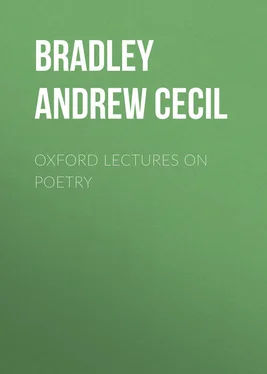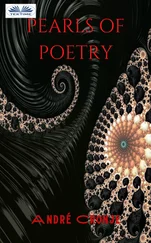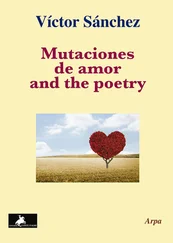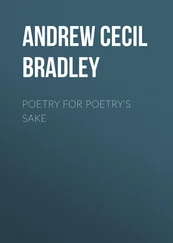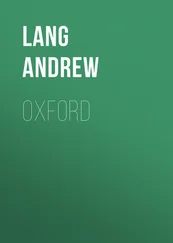Andrew Bradley - Oxford Lectures on Poetry
Здесь есть возможность читать онлайн «Andrew Bradley - Oxford Lectures on Poetry» — ознакомительный отрывок электронной книги совершенно бесплатно, а после прочтения отрывка купить полную версию. В некоторых случаях можно слушать аудио, скачать через торрент в формате fb2 и присутствует краткое содержание. ISBN: , Жанр: foreign_antique, foreign_prose, foreign_poetry, на английском языке. Описание произведения, (предисловие) а так же отзывы посетителей доступны на портале библиотеки ЛибКат.
- Название:Oxford Lectures on Poetry
- Автор:
- Жанр:
- Год:неизвестен
- ISBN:http://www.gutenberg.org/ebooks/36773
- Рейтинг книги:4 / 5. Голосов: 1
-
Избранное:Добавить в избранное
- Отзывы:
-
Ваша оценка:
- 80
- 1
- 2
- 3
- 4
- 5
Oxford Lectures on Poetry: краткое содержание, описание и аннотация
Предлагаем к чтению аннотацию, описание, краткое содержание или предисловие (зависит от того, что написал сам автор книги «Oxford Lectures on Poetry»). Если вы не нашли необходимую информацию о книге — напишите в комментариях, мы постараемся отыскать её.
Oxford Lectures on Poetry — читать онлайн ознакомительный отрывок
Ниже представлен текст книги, разбитый по страницам. Система сохранения места последней прочитанной страницы, позволяет с удобством читать онлайн бесплатно книгу «Oxford Lectures on Poetry», без необходимости каждый раз заново искать на чём Вы остановились. Поставьте закладку, и сможете в любой момент перейти на страницу, на которой закончили чтение.
Интервал:
Закладка:
In thoughts from the visions of the night
When deep sleep falleth on men,
Fear came upon me and trembling,
Which made all my bones to shake.
Then a spirit passed before my face;
The hair of my flesh stood up.
It stood still, but I could not discern the form thereof.
An image was before mine eyes.
There was silence, and I heard a voice.
It has been observed that attempts to illustrate such passages as these dissipate their sublimity by diminishing the obscurity of the object. Blake’s illustrations of the lines in Milton and in Job 25 25 At least if the ‘Vision’ is sublime its sublimity is not that of the original. We can ‘discern the form thereof’ distinctly enough.
show this, while his design of the morning-stars singing together is worthy even of the words.
We may trace this severity towards sense, again, in examples already mentioned, the ideas of Fate, of the eternal laws to which Antigone appeals, of Duty in Wordsworth’s ode. We imagine these powers as removed from sight, and indeed wholly immaterial, and yet as exercising sovereign dominion over the visible and material world. And their sublimity would be endangered if we tried to bring them nearer to sense by picturing the means by which they exercise their control.
I will take a last example. It has probably been mentioned in almost every account of the sublime since Longinus quoted it in his work on Elevation of Style. And it is of special interest here because it illustrates at one and the same time the two kinds of sublimity which we are engaged in distinguishing. ‘God said, Let there be light, and there was light.’ The idea of the first and instantaneous appearance of light, and that the whole light of the whole world, is already sublime; and its primary appeal is to sense. The further idea that this transcendently glorious apparition is due to mere words, to a breath – our symbol of tenuity, evanescence, impotence to influence material bulk – heightens enormously the impression of absolutely immeasurable power.
To sum up, then, on this matter. It is not safe to distinguish the sublime from the ‘beautiful’ by its hostility to sense. The sublime may impress its overwhelming greatness in either of two ways, by an appeal to sense, or by a kind of despite done to it. Nor can we assert, if we think of the sunrise, the thunderstorm, or of sublime music, that the second of these ways is more distinctive of the sublime than the first. But perhaps we may say this. In ‘beauty’ that which appears in a sensuous form seems to rest in it, to be perfectly embodied in it, and to have no tendency to pass beyond it. In the sublime, even where no such tendency is felt and sublimity is nearest to ‘beauty,’ we still feel the presence of a power held in reserve, which could with ease exceed its present expression. In some forms of sublimity, again, the sensuous embodiment seems threatening to break in its effort to express what appears in it. And in others we definitely feel that the power which for a moment intimates its presence to sense is infinite and utterly uncontainable by any or all vehicles of its manifestation. Here we are furthest (in a way) from sense, and furthest also from ‘beauty.’
(3) I come finally and, as it will at first seem, needlessly to an idea which has already been touched on. The words ‘boundless,’ ‘illimitable,’ ‘infinite,’ constantly recur in discussions of sublimity, and it cannot be denied that our experience constantly provokes them. The sublime has been said to awake in us the consciousness of our own infinity. It has been said, again, to represent in all cases the inadequacy of all finite forms to express the infinite. And so we may be told that, even if we do not adopt some such formula, but continue to speak of ‘greatness,’ we ought at least to go beyond the adjective ‘exceeding’ or ‘overwhelming,’ and to substitute ‘immeasurable’ or ‘incomparable’ or ‘infinite.’
Now, at the point we have reached, it would seem we might at once answer that a claim is here being made for the sublime in general which really holds good only of one kind of sublimity. Sometimes the sublime object is apprehended as the Infinite, or again as an expression of it. This is, for example, a point of view frequent in Hebrew poetry. Sometimes, again, the object ( e. g. time or the heavens) is apprehended, not indeed as the Infinite, but still as infinite or immeasurable. But how are we to say that a sublime lion or mountain, or Satan or Lady Macbeth, is apprehended as the Infinite, or as infinite, or (usually) as even an expression of the Infinite? And how are we to say that the greatness of most sublime objects is apprehended as incomparable or immeasurable? It is only failure to observe these distinctions that leads to errors like one recorded in Coleridge’s Table-talk (July 25, 1832): ‘Could you ever discover anything sublime, in our sense of the word, in the classic Greek literature? I never could. Sublimity is Hebrew by birth.’
This reply, however, though sound so far as it goes, does not settle the question raised. It may still be maintained that sublimity in all cases, and even when we have no idea of infinity before us, does represent the inadequacy of all finite forms to express the infinite. And it is unfortunately impossible for us to deal fully with this contention. It would carry us into the region of metaphysics; and, while believing that no theory of the sublime can be complete which stops short of that region, I am aiming in this lecture at no such theory, but only at a result which may hold good without regard to further developments. All that I can do is to add a few words on the question whether, going beyond the adjective ‘exceeding’ or ‘overwhelming,’ we can say that the sublime is the beautiful which has immeasurable, incomparable, or infinite greatness. And the answer which I suggest and will go on to explain may be put thus: the greatness is only sometimes immeasurable, but it is always unmeasured.
We cannot apprehend an object as sublime while we apprehend it as comparably, measurably, or finitely great. Let the thing be what it may – physical, vital, or spiritual – the moment we say to ourselves, ‘It is very great, but I know how great,’ or ‘It is very great, but something else is as great or greater,’ at that moment it has ceased to be sublime. Outside the consciousness of its sublimity we may be perfectly well aware that a thing is limited, measurable, equal or inferior to something else. But then we are not finding it sublime. And when we are so finding it, we are absorbed in its greatness, and have no thought either of the limits of that or of its equality or inferiority to anything else. The lion of whom we are thinking, ‘An elephant could kill him,’ is no sublime lion. The Falls of Schaffhausen are sublime when you are lost in astonishment at them, but not when you are saying to yourself ‘What must Niagara be!’ This seems indubitable, and hence we may say that, in one sense, all sublimity has unmeasured greatness, and that no greatness is sublime which we apprehend as finite.
But the absence of a consciousness of measure or finitude is one thing; the presence of a consciousness of immeasurableness or infinity is another. The first belongs to all sublimity, the second only to one kind of it, – to that where we attempt to measure, or find limits to, the greatness of the thing. If we make this attempt, as when we try in imagination to number the stars or to find an end to time, then it is essential to sublimity that we should fail, and so fail that the idea of immeasurability or endlessness emerges. In like manner, if we compare things, nothing will appear sublime whose greatness is surpassed or even equalled by that of something else; and, if this process of comparison is pursued, in the end nothing will be found sublime except the absolute totality (however it may be imagined). And this kind of sublimity, which arises from attempts to measure or compare, is often exceedingly striking. But it is only one kind. For it is an entire delusion – though a very common one in theories of the sublime – to suppose that we must attempt to measure or compare. On the contrary, in the majority of cases our impression of overwhelming greatness is accompanied neither by any idea that this greatness has a measure, nor by the idea that it is immeasurable or infinite. 26 26 To avoid complication I have passed by the case where we compare the sublime thing with another thing and find it much greater without finding it immeasurably great. Here the greatness, it appears to me, is still unmeasured. That is to say, we do not attempt to determine its amount, and if we did we should lose the impression of sublimity. We may say , perhaps, that it is ten, fifty, or a million times, as great; but these words no more represent mathematical calculations than Hamlet’s ‘forty thousand brothers.’
Интервал:
Закладка:
Похожие книги на «Oxford Lectures on Poetry»
Представляем Вашему вниманию похожие книги на «Oxford Lectures on Poetry» списком для выбора. Мы отобрали схожую по названию и смыслу литературу в надежде предоставить читателям больше вариантов отыскать новые, интересные, ещё непрочитанные произведения.
Обсуждение, отзывы о книге «Oxford Lectures on Poetry» и просто собственные мнения читателей. Оставьте ваши комментарии, напишите, что Вы думаете о произведении, его смысле или главных героях. Укажите что конкретно понравилось, а что нет, и почему Вы так считаете.
